Action
Postcards from the edge: Snapshots of European football’s return

In the shadows of Germany’s Bundesliga, football is gradually restarting in countries across Europe, in almost all cases behind closed doors, with the exception of Hungary where supporters have been allowed to return.
From plastic fans in Poland, to virtual fans in Denmark, drive-in spectators in the Czech Republic and a title coronation in Serbia, AFP takes a look at a weekend of football in times of the coronavirus.
Fans return in Hungary
Forgotten sounds resonated in grounds across Hungary this weekend as songs, the beating of drums and the sense of excitement which spreads throughout the crowd when the ball nears the goal all returned for the first time since March.
After two months without spectators, sports venues reopened their doors to the public this weekend in Hungary, the first country to welcome supporters back to the stands, on the condition that every other row is left empty and only one in four seats is occupied.
“We will respect the rules because there could be games behind closed doors again if we mess up,” said Richard Kovacs, 36, one of the 2,255 fans at Diosgyor’s match against Mezokovesd.
“All that worries us is knowing if we’re going to win or lose, not the epidemic,” said Gabor Lengyel, 41, suggesting that football, and by extension life for some, is approaching a return to normal.
Poland home to plastic supporters

Poland will follow Hungary’s lead with fans able to attend matches from June 19, although stadiums will be limited to a quarter of capacity.
In the meantime, the league restarted on Friday behind closed doors with noisy, hardcore Polish fans forced to adapt. Supporters of Pogon Szczecin arranged a guard of honour, holding aloft flares every 10 metres on the road leading to the stadium.
Lechia Gdansk relied on some private support on Sunday against Arka Gdynia, with photos of some 200 fans printed onto plastic backgrounds and placed in the stands.
The photos cost 75 zlotys (17 euros, $19) and will eventually be returned to fans taking part in the initiative once signed by their favourite player.
Czech drive-in cinemas
The second weekend of the Czech league since the season’s resumption saw defending champions and leaders Slavia Plague thrash Jablonec 5-0 at an empty Eden Arena on Saturday.

However, it wasn’t totally deserted as the club placed 1,000 plastic photos of players in the stands while giving fans the chance to do likewise for roughly 500 koruna (19 euros, $20), half of which will go to Slavia’s youth teams. Around 500 ‘fans’ made it for kick-off.
To liven up the eerie atmosphere, Sparta Prague and Viktoria Plzen are pumping out team songs during their games. For Wednesday’s meeting between the two they set up drive-in cinemas in both Prague and Plzen.
“We weren’t able to go to the stadium because of the situation. I saw about this opportunity on social media so my friend and I bought tickets and came. It’s very different, we’re not really screaming and we miss the stadium, it’s impossible to replace,” Sparta fan Petr Svoboda, who watched the 2-1 loss to Plzen, told AFP.
Stankovic’s Red Star champions in Serbia

Despite their reputation and the clinching of a title — the first in Europe since football’s return — typically boisterous Serbian supporters remained calm as the league resumed Friday behind closed doors.
Rad Belgrade hosted city rivals Red Star in the biggest match, where a 5-0 victory for the visitors secured them a 31st league title.
Anyone expecting a sea of supporters flocking to the streets to celebrate was disappointed. Only a hundred or so hardcore fans gathered outside Red Star’s ground to toast the newly-crowned champions while mobbing the club’s coach, former Inter Milan midfielder Dejan Stankovic, outside the Marakana.
Virtual supporters in Denmark

After a near three-month hiatus, the Danish league returned Thursday as AGF took on Randers in Aarhus in a 1-1 draw behind closed doors.
On the eve of the match the Aarhus club had invited eager fans to stick banners, flags and other cardboard cut-outs in the stands, far from the usual ambiance expected for a clash between two Jutland rivals.
Aarhus supporter Liva Hansen, 28, followed the match on TV and via popular videoconferencing platform Zoom along with a group of friends.
All five were part of a virtual audience of 30,000 people, whose images were beamed onto giant screens around the pitch.
“No doubt, that helped,” Aarhus coach David Nielsen told Danish tabloid Ekstra Bladet. “It created a little alternative atmosphere, specific to 2020.”
“It’s a good solution but obviously I would have preferred to be in the stands,” said Hansen. “It was nice to be able to see the other fans and their reactions, during the good moments but also during the less good!”
Reporting and photos: AFP
Action
Sun Siyam Olhuveli invests in staff wellbeing with upgraded sports facilities
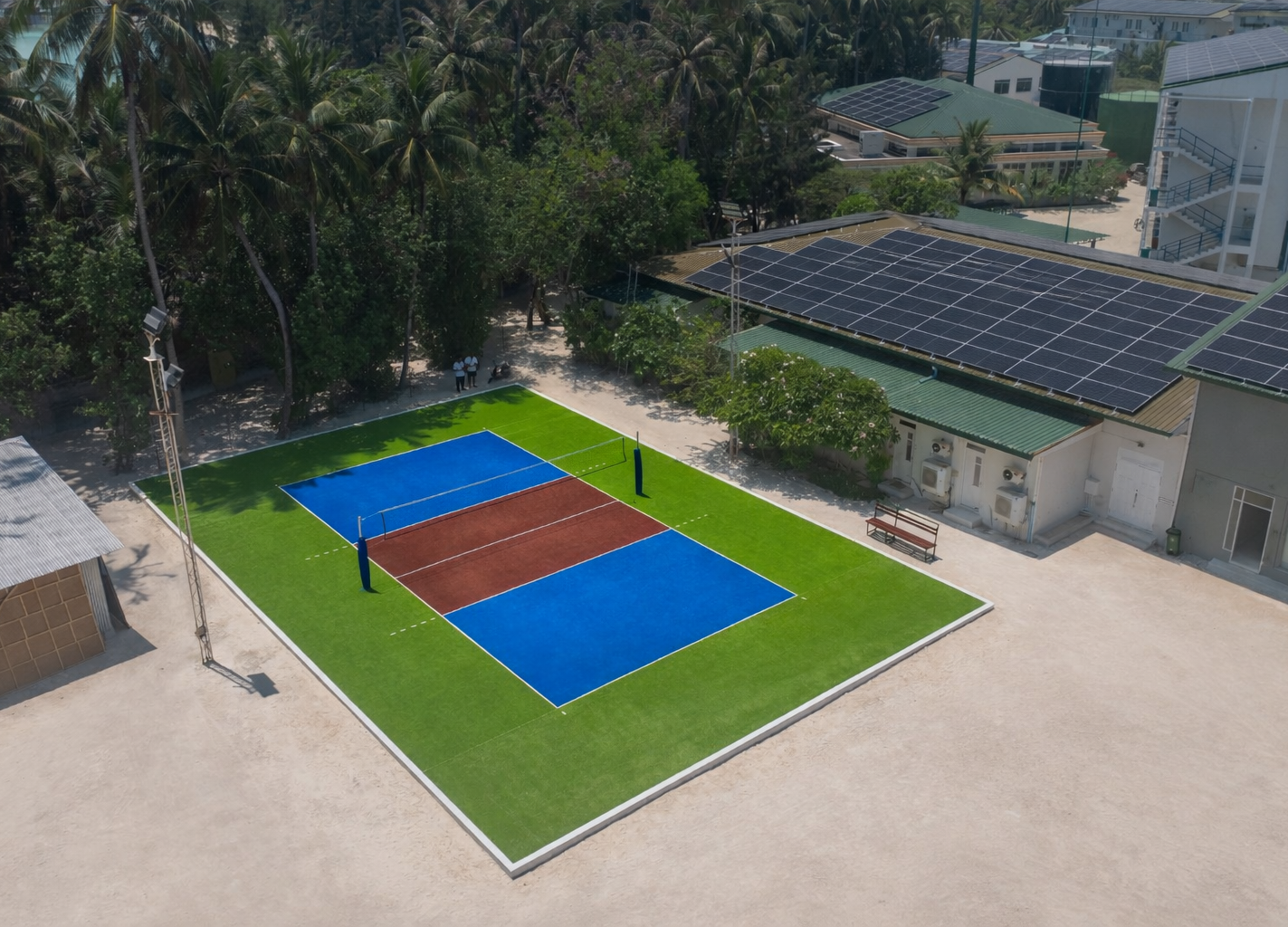
Sun Siyam Olhuveli has unveiled newly upgraded volleyball and futsal grounds for team members, reaffirming its commitment to employee wellbeing while advancing responsible, future-focused operations. The renovated volleyball grounds were officially inaugurated on 14 February, while the upgraded futsal ground opened earlier this year—together creating dedicated spaces for recreation, connection, and healthy competition across the island.
Designed to encourage regular physical activity and camaraderie beyond the workplace, the improved sports facilities represent a thoughtful investment in social infrastructure. They reflect a belief that wellbeing is fundamental to long-term performance, nurturing morale, teamwork, and a strong sense of belonging among team members.
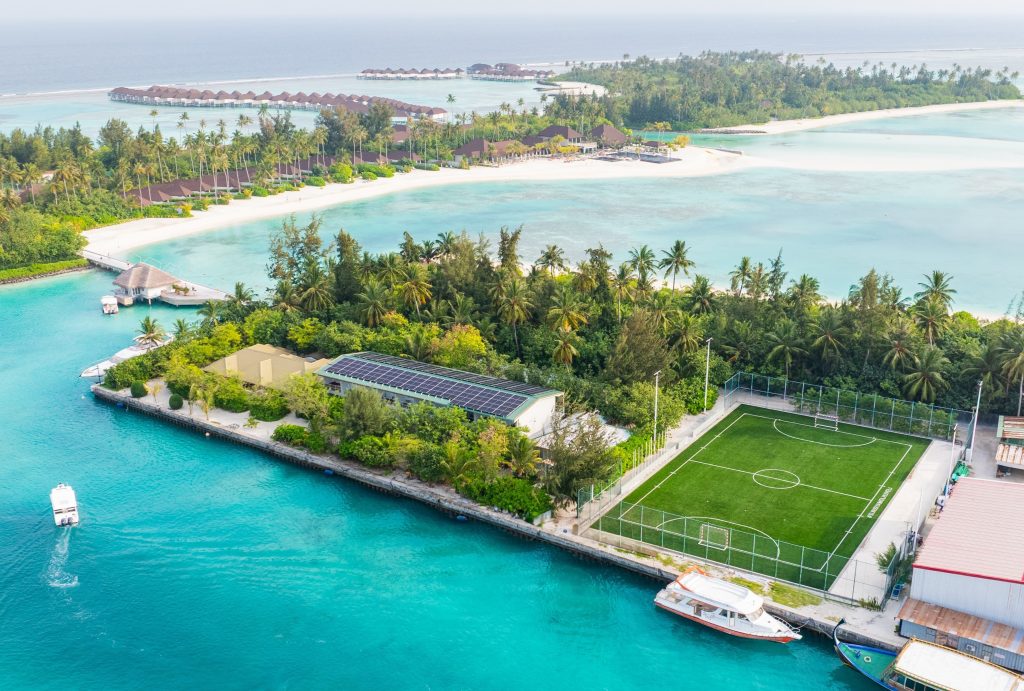
Alongside these developments, the resort has implemented NO BIN DAY every Tuesday, a practical initiative aimed at minimising food waste across operations. By encouraging mindful planning and responsible consumption, the initiative challenges teams to rethink habits around food—transforming sustainability into a shared, everyday discipline.
“Taking care of our people and the environment must go hand in hand. By investing in spaces that support our team’s wellbeing and introducing simple disciplines like NO BIN DAY, we are building a culture where responsibility is lived every day—naturally, collectively, and with purpose,” said Hassan Adil, General Manager of Sun Siyam Olhuveli.

Both initiatives form part of Sun Siyam Care, the group’s corporate social responsibility platform, and align with the Social Infrastructure and Responsible Consumption and Production pillars under the GDS framework. Together, they reflect a people-first approach to sustainability—where everyday actions create lasting impact for teams, operations, and the wider community.
Sun Siyam Care is committed to creating a positive impact for people, communities, and the environment through responsible operations, social investment, and long-term sustainability actions across its destinations in the Maldives and Sri Lanka.
Guests are encouraged to learn more about these initiatives by visiting the Sun Siyam Care website at sunsiyam.com/sun-siyam-care.
Action
Sheraton Maldives Full Moon celebrates sixth anniversary of Reefscapers collaboration
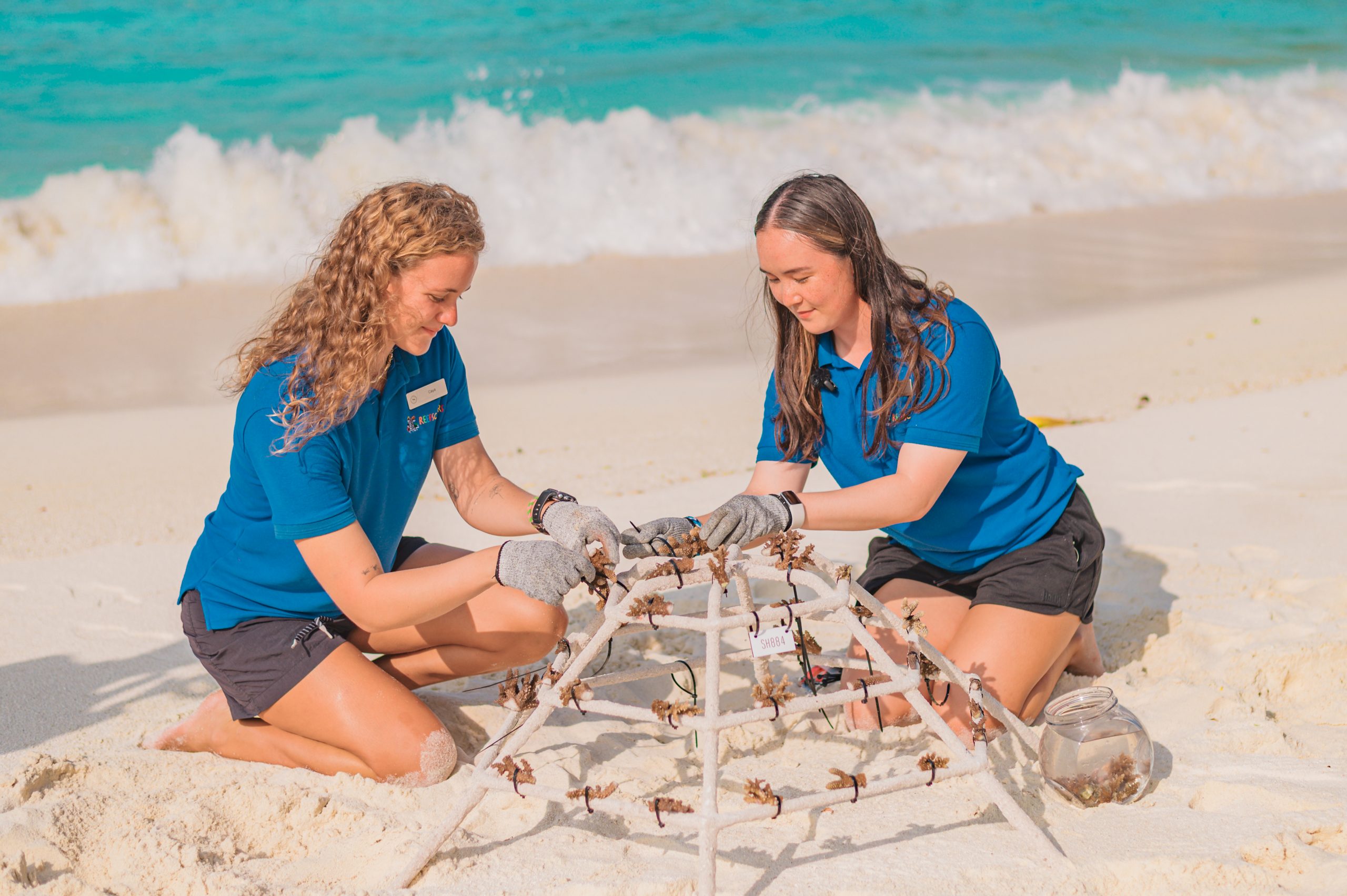
Sheraton Maldives Full Moon Resort & Spa marks the sixth anniversary of its partnership with Reefscapers on February 19, 2026, reaffirming its commitment to protecting and restoring the Maldives’ fragile reef ecosystems. Since launching the partnership in 2020, the resort and Reefscapers have worked together to restore coral habitats, support marine biodiversity, and engage guests in meaningful conservation experiences. The milestone also marks one year since the successful relocation of approximately five tons of coral to the resort’s house reefs — one of the partnership’s most significant conservation initiatives.
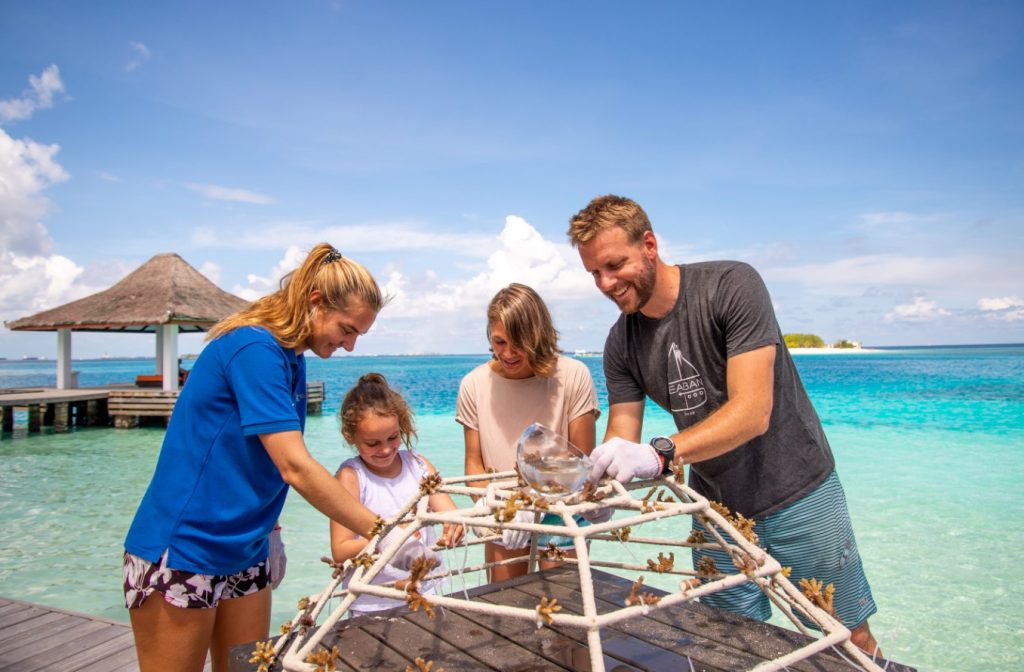
Over the past six years, the partnership has become a defining pillar of the resort’s sustainability journey, blending scientific restoration with purposeful guest engagement. To date, the initiative has resulted in the planting of 898 coral frames, supporting approximately 33,000 coral colonies now growing across the restoration sites. Through coral propagation, reef monitoring, and awareness programmes, these efforts continue to regenerate reef structures while deepening understanding of the essential role coral ecosystems play in sustaining marine life and protecting coastlines. Each thriving coral frame reflects a shared dedication to preserving the natural wonders that make the Maldives one of the world’s most extraordinary marine destinations.
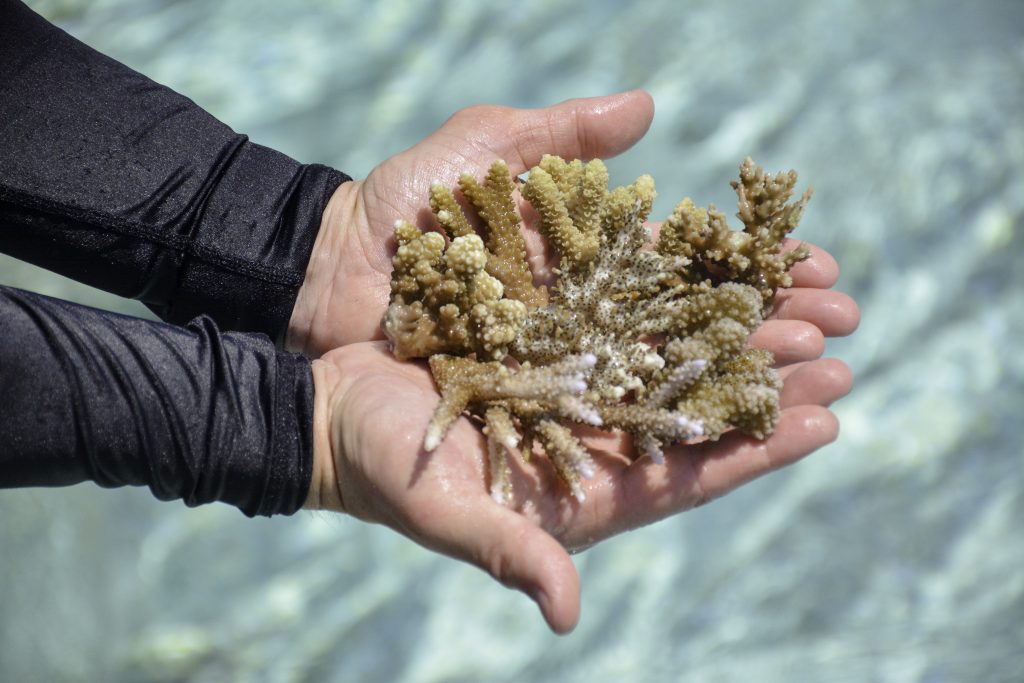
“What makes this partnership special is seeing how small, consistent actions turn into real change underwater. Watching the relocated corals settle, survive, and begin to grow over the past year has been incredibly rewarding for us and the guests who return and witness how they’ve helped restore a living reef,” shares Katelyn, the resort’s Marine Biologist.
A defining achievement of the collaboration has been the coral relocation project, which carefully transferred coral colonies from Ras Malé, also known as the Maldives Eco City, to the resort’s dedicated restoration site, safeguarding them from potential threats linked to land reclamation activities in the Fushi Dhiggaru Lagoon. One year on, these corals continue to flourish beneath the surface, strengthening reef resilience and contributing to the long-term health of the surrounding ecosystem.
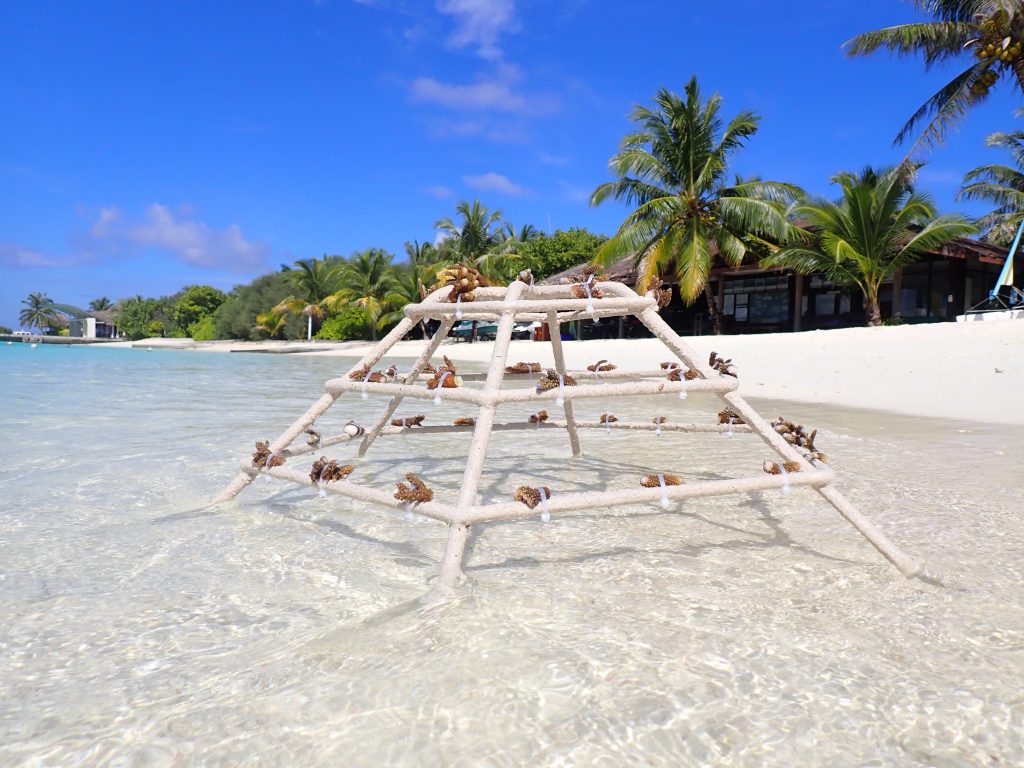
At the heart of the partnership lies the resort’s Adopt a Coral programme, part of the Good Travel with Marriott Bonvoy initiative, which encourages guests to travel with intention through meaningful environmental experiences. Through this hands-on activity, visitors can adopt and name a coral frame while learning directly from marine experts about coral ecology and the importance of protecting marine habitats.
To deepen this connection beyond the stay, guests receive growth updates on their adopted corals every six months, allowing them to follow the progress of their living contribution to the reef. As these corals grow over time, they become enduring symbols of renewal and shared responsibility, transforming a holiday memory into a lasting environmental legacy, and reflecting how travel can positively support local ecosystems and communities.
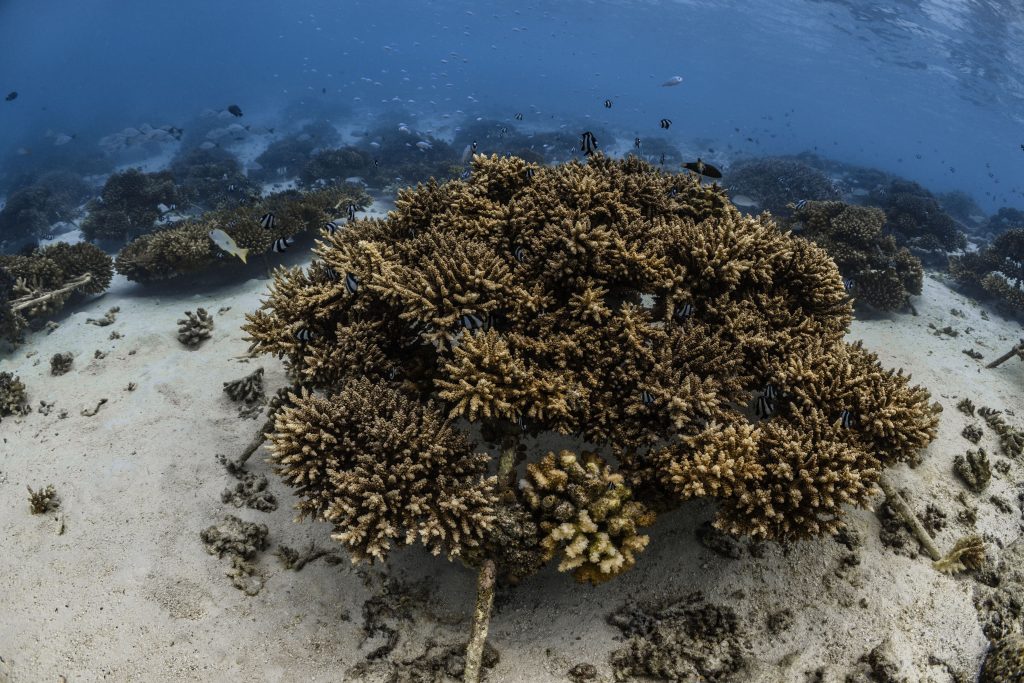
“Our island is surrounded by a remarkable marine environment, and protecting it is a responsibility we take seriously. Our partnership with Reefscapers reflects our belief that hospitality should go hand in hand with stewardship. Seeing the reef restoration progress over the past six years, and the involvement of our guests and associates in that journey, makes this anniversary especially meaningful for all of us,” comments Greg Allan, General Manager of Sheraton Maldives Full Moon Resort & Spa.
Through its continued collaboration with Reefscapers, Sheraton Maldives Full Moon Resort & Spa remains dedicated to advancing marine conservation while creating purposeful guest experiences rooted in sustainability, education, and connection to nature.
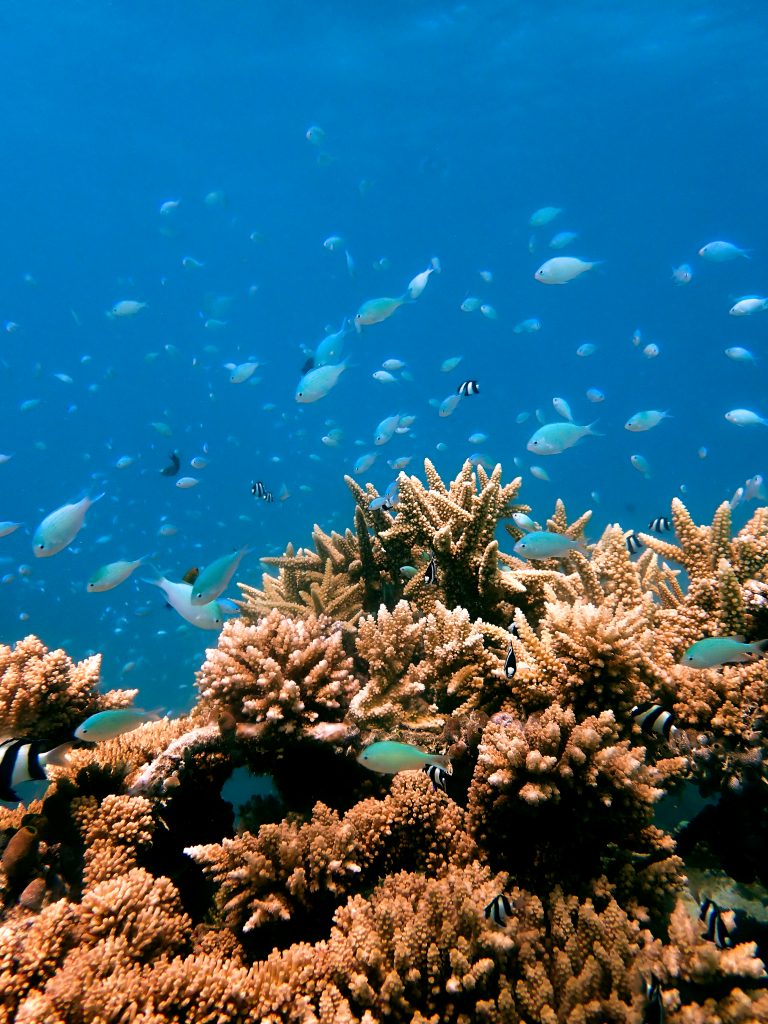
To discover more about the resort’s sustainability initiatives, join the Adopt a Coral programme, or plan a stay that supports reef conservation, visit sheratonmaldives.com or contact the reservations team at Sheraton.Maldives@sheraton.com.
Action
Sun Siyam Vilu Reef unveils expanded marine excursion portfolio

Sun Siyam Vilu Reef, part of the Sun Siyam Privé Collection, has introduced an expanded portfolio of water-based experiences designed to showcase the natural environment and marine life of the surrounding atolls. The enhanced programme combines exploration, activity and moments of calm, offering guests new ways to experience the Maldives through curated ocean journeys and personalised excursions.
Building on established activities such as Jet Car rides, SeaBob adventures and windsurfing, the resort has expanded its watersports offering to include private speedboat journeys and bespoke marine experiences. These additions are tailored for small groups seeking intimate and meaningful encounters with the ocean.
Available daily from the resort’s Watersports Centre, the new private speedboat excursions provide a personalised way to explore the hidden marine sites of Dhaalu Atoll. Designed for one to four guests, each journey offers flexibility and individual attention. Guests may choose from four-hour, five-hour or full-day itineraries, all of which include a freshly prepared barbecue lunch. From coral gardens to secluded sandbanks, the excursions highlight the region’s diverse marine landscapes.
The programme’s centrepiece is the Full Day Adventure Trip, which offers an extended exploration of key marine locations. Highlights include the Coral Garden, known for its biodiversity and reef formations; Turtle Point, where sea turtles are frequently sighted; and Nurse Shark Point, which provides opportunities to observe nurse sharks in their natural environment. The experience concludes with a beachside lunch on a private sandbank, set against uninterrupted views of the Indian Ocean.
For guests seeking a balance between activity and relaxation, the Waves of Adventure and Calmness experience combines a private two-hour snorkelling safari or Jet Ski safari with a full-body massage at the resort. The programme is designed to transition smoothly from ocean exploration to restorative island time, reflecting the relaxed pace that characterises Sun Siyam Vilu Reef.
As part of the Sun Siyam Privé Collection, Sun Siyam Vilu Reef continues to focus on personalised service and experiences rooted in the natural setting of the Maldives. Through its expanded watersports offering, the resort invites guests to engage with the marine environment while enjoying a sense of privacy, discovery and connection to the Maldivian seascape.
-

 News1 week ago
News1 week agoRefined overwater vision: Velaa Private Island’s upgraded Ocean Pool House
-

 Cooking1 week ago
Cooking1 week agoA spring of flavours: Nowruz dining series at JW Marriott Maldives Resort & Spa
-
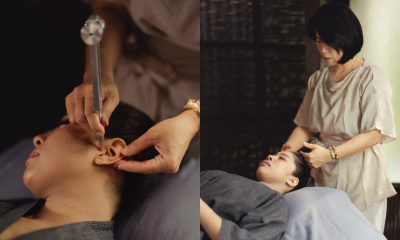
 Featured1 week ago
Featured1 week agoYoko Kawaguchi to lead holistic wellness residency at Vakkaru Maldives
-

 News7 days ago
News7 days agoPulse Hotels & Resorts unveils Aura Maldives, a mindful luxury sanctuary
-
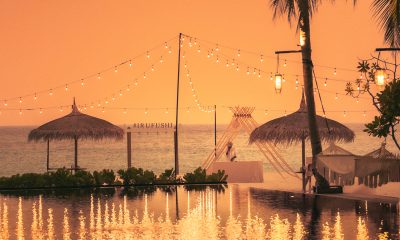
 News1 week ago
News1 week agoSun Siyam Iru Fushi sets new nenchmark with 24 Hour Premium All Inclusive Dine Around
-
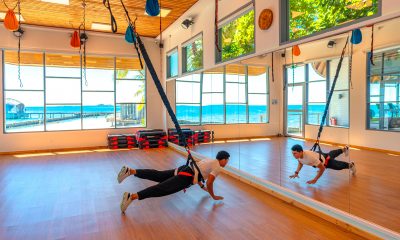
 Fitness1 week ago
Fitness1 week agoOUTRIGGER Maldives Maafushivaru launches expanded wellness programming for 2026
-
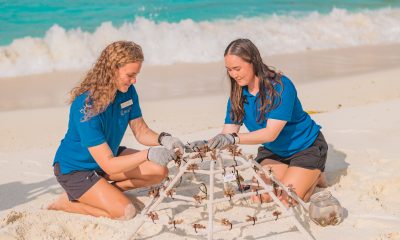
 Action1 week ago
Action1 week agoSheraton Maldives Full Moon celebrates sixth anniversary of Reefscapers collaboration
-
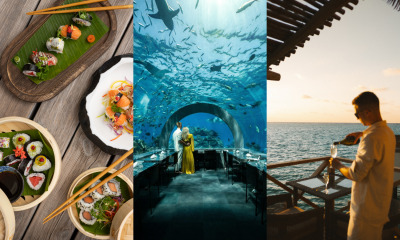
 Featured1 week ago
Featured1 week agoYou & Me Maldives unveils curated Premium All Inclusive programme









